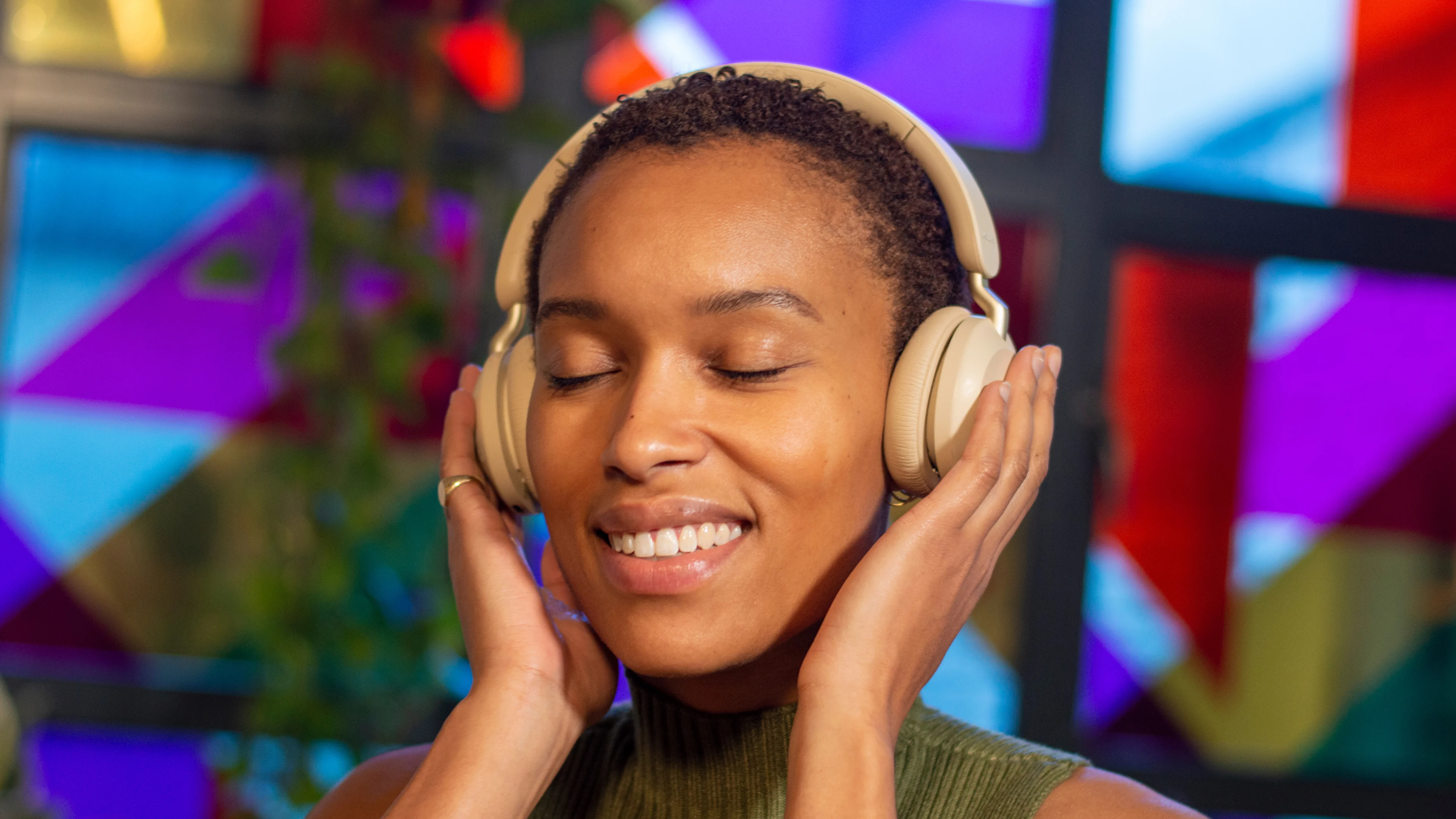Pass the Mic AMA; Audio Producers
Welcome to the exciting world of audio. In this industry, there’s something for everyone, including roles you’ve probably never heard of. Think: voice actresses, music curators, entertainment lawyers, and more. The audio industry is seriously lacking in women’s representation, and we’re aiming to promote leadership, equality, and action. That’s why we launched a monthly series with She Is The Music to peek behind the curtain at what’s possible as a female in the industry.
In our November's session, we chatted with Tanvi Phadke, Sound Engineer and 3D Audio Specialist, and Marin Moran, Post Production Lead, here at Pandora. Coming from two different aspects of the business (B2B vs B2C), Tanvi and Marin chatted with Moderator Lyndsey Havens of Billboard about day-to-day life as audio producers, how to hone your skills, and building your personal sonic brand.
Read below for some of the best Q&As from the moderator and the audience:
1. Do you have any hobbies that involve audio? Such as podcasting?
Tanvi: I practice dialogue editing on the side when I have some free time, as it’s such a difficult art to master and something I loved doing before joining Pandora. I go back to my old sessions and re-do the edit in a different way—then compare the results. I also love learning new instruments—right now I’m trying to learn the guitar but I’m failing pretty badly.
Marin: I still make music playlists all the time. It’s kind of like eating and breathing for me! I’m not sure what I’d do without that creative outlet.
2. To either speaker: what are the challenges of being in an "artistic" field in a tech company?
M: It can be a little challenging when the main focus of the company isn’t purely artistic. Systems, tools and processes aren’t necessarily built for the work that you do and it can be difficult to get specialized support for software and media management. On the flip side, you can sometimes use that as an opportunity to create your own systems and develop custom processes that work best for you and your team.
3. What are you both excited about in your career futures?
M: I feel very fortunate to have made a career out of creative work. I hope I’m lucky enough to continue to do that in the future! And I’m excited to see what changes and new innovations are ahead. Music and audio industries have seen so many seismic shifts over the last few decades and I’m curious to see what comes next.
4. I have four degrees in psychology, public administration, liberal arts, and theology. Music is a first love and the artistry of writing and curator ...do I need to get a degree in music to have a career in this industry?
M: You don’t! There are so many ways in. How can you take your education and experience and apply it at a music company? There are so many potential roles you’ve probably never even thought of and may not know existed! I think it helps to bring something different! You just need to find your angle.
5. Most labels have frozen intern programs—how do you recommend gaining experience for a college student considering the circumstances?
T: It really is an extraordinary time to be getting experience in a field that really requires you to be physically present, so I sympathize with folks who are trying to break it in this industry in today’s times. I have heard some studios are doing virtual internship programs so it never hurts to ask if they have one. Even if it means getting a 1:1 Q&A session with an engineer from the label. If not, you can also use this time to strengthen your reel by practicing your art every day. So when the time comes, you’re ready to showcase your skills to the labels you’re trying to impress.
6. What is the best way to navigate the waters of music and tech, subsequently building a career in the former?
M: I think you just need to be open to whatever comes your way and always be learning. I had to learn all kinds of new tools, specs and technology when I started working at Pandora. Many of these tools were used to deliver the audio content I was creating. It was fascinating and invigorating to get to use new tools, get an understanding of how content is delivered to our audience and to help shape the user experience.
7. For Tanvi, what are your favorite types of ads to work on?
T: 3D audio ads are always my first choice. Since it involves using complex spatialization tools and techniques to tell a brand’s story in a few words and more sound effects. It’s really up to you your imagination how you want to captivate listeners, so the possibilities can be endless. I like to go beyond just the two dimensional, flat way of listening to audio that we’re so used to. How can I really bring the listener into an environment and make them feel like they actually belong there, in just 30 secs. It’s a true challenge.
8. What are some tips for teaching yourself music production software?
T: You can learn anything on Youtube these days. There are a ton of videos of people using Pro Tools or Logic or any plugin you can imagine. You can follow along and treat it like your own personal class. Make sure to practice in your own time by stripping out audio from a video and redesigning the sound in your own style. If you’re into creating music, learn an instrument—record yourself, twist the sound around, add complex layers to your tracks, and to make new and interesting music. The key is really to use the software as much as you can until it just becomes muscle memory for you.
9. What is your favorite DAW or programs to use for producing audio?
T: Pro tools is my go-to for everything audio. I also use Izotope RX on the daily - a very very important tool if you want to go a long way in making bad audio sound good. I love all the Fab Filter plugins as well.
10. For Marin, what turned you off of working with a music label?
M: I loved the access to new music and the opportunity to listen to new submissions (I remember receiving an exciting early My Morning Blanket demo!). I loved getting to know others in the industry and have kept many of those connections. Ultimately, working for a label felt too limited and didn’t allow me to interact with the music and artists in a way that satisfied me. Once I landed at Pandora, I was able to interview and connect directly with artists about their music and the music they love. I was able to create and produce music content and help develop new programs. I worked on many live and recorded music initiatives and really found that being on that more creative/interactive side of things was what I loved most.
11. How has your job changed now moving from an office to a work from home situation?
M: I’m a collaborator by nature and it’s hard not having that in person energy to feed off of and be inspired by. I’m so very fortunate to work with such incredibly talented and amazing humans and I really miss seeing their faces every day. I also have a 10yr old daughter and it’s incredibly challenging to focus on my work and help her with distance learning, not to mention keeping her fed all day!
12. How did you keep yourself motivated while making a career move. I think I am in a similar boat. I just got into production and have a hard time keep myself motivated.
M: Great question. I feel like motivation is extra tough right now due to all that’s going on in the world, including a once in a century global pandemic! I think it’s really important to be kind to ourselves right now. It’s just hard to be motivated. Give yourself the space you need for self care, accept that it may take longer to get things done right now, take more breaks. I tend to go super hard and then burn myself out - then I wonder why I’m not feeling motivated! It can be really hard for me to take breaks and carve out time for my physical and mental health but when I do, IT MAKES ALL THE DIFFERENCE. Also, continue to pay attention to how you’re feeling… if you make some adjustments but still lack motivation over time, perhaps it’s time to make another career shift. It’s ok to try something and discover that it’s not for you! You deserve to be happy and enjoy the work that you do. I think this will be easier to figure out once we make it past Covid.
13. How do you find mentors in the music industry?
M: Stay on the lookout! I’m sure it’s more difficult during Covid but there are still a number of virtual opportunities. One place in particular I’ve found has been great for making new connections and meeting other talented women in the industry has been local festivals and events. There’s an incredible Oakland festival led by BIPOC women, called Women Sound Off. I have met so many rad women doing incredible things in the audio and music industries at this festival and I highly recommend joining their mailing list! They’re doing a handful of virtual events this year so if you’re not in the Bay you have an opportunity to attend. Find spaces such as these where like-minded boss women gather and start some conversations!
Visit our page here for more Pass the Mic content.
Related Insights
 Audience
AudienceCelebrating Diversity & Opportunities in Black Music
Dec 16, 2025 Digital Audio
Digital AudioThe Ultimate Guide to Audio Advertising
Dec 15, 2025 Audience
AudienceNow Spinning: Black Music Is Bringing the Heat This Winter
Dec 15, 2025 Streaming
StreamingStreaming Audio Boosts Brand Awareness: Here's How
Dec 12, 2025



